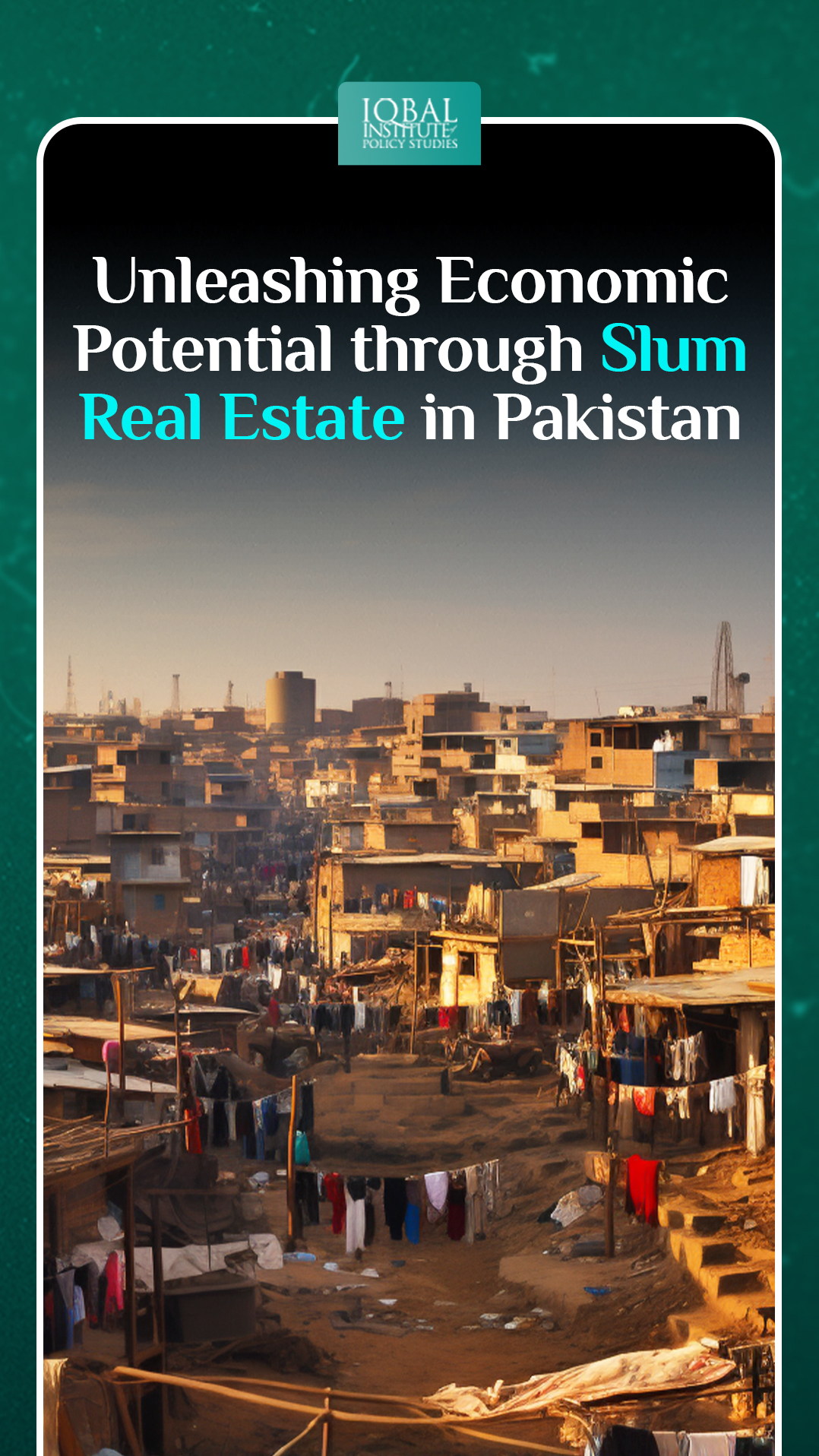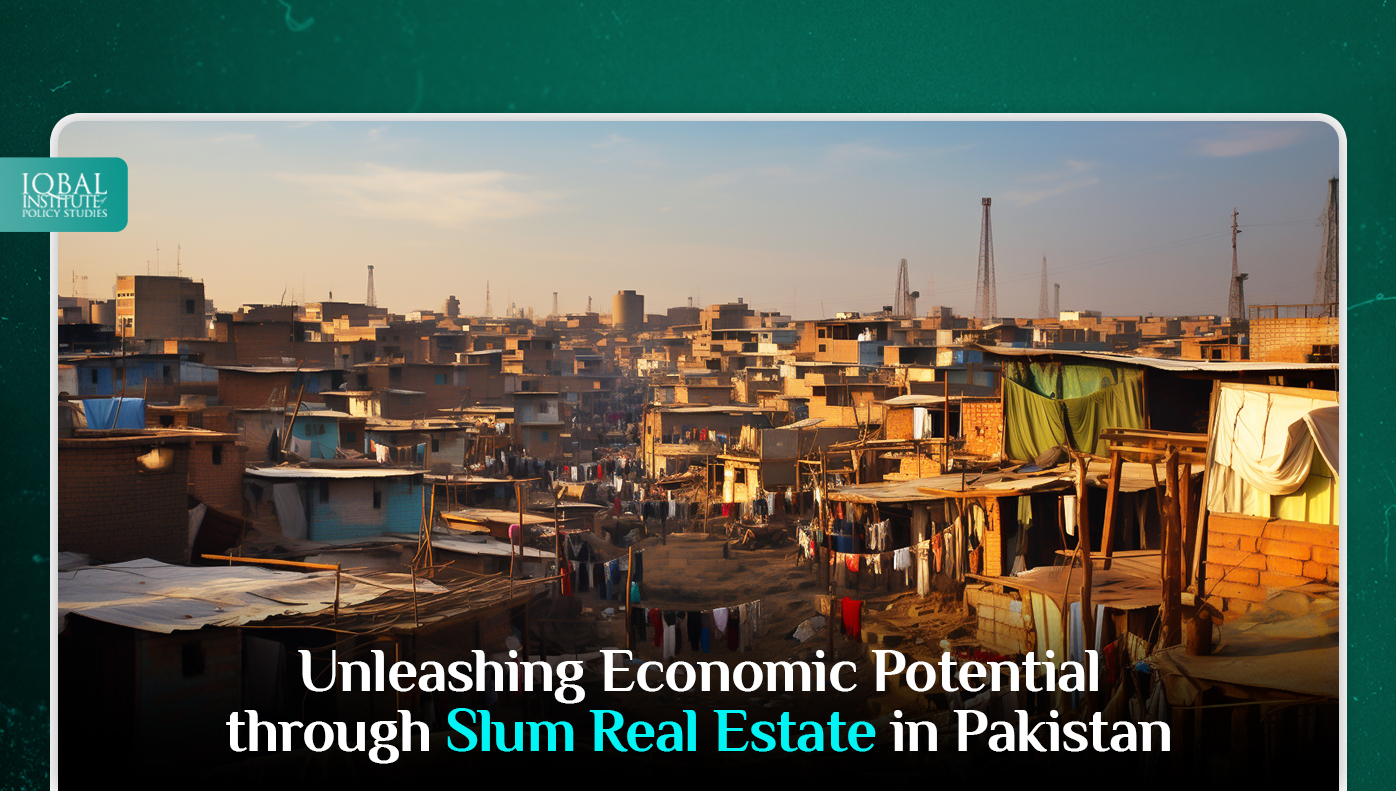In the vibrant tapestry of Pakistan’s urban landscape, the challenge of slums stands as a testament to the complexities that rapid urbanization brings. However, within these challenges lies a transformative opportunity, one that not only uplifts physical environments but also empowers lives, reshaping the narrative of urban development. Slum redevelopment projects hold the potential to catalyze economic empowerment, ushering in a wave of change that goes beyond mere infrastructure enhancement. The unfolding story of slum real estate initiatives in Pakistan is one of empowerment, entrepreneurship, and progress. This blog delves deep into the dynamic ways in which these initiatives can serve as catalysts for economic growth, generating employment opportunities, nurturing entrepreneurship, and enhancing the overall livelihoods of those residing in these communities, with a specific focus on the Pakistani context.
Pakistan’s Urban Challenge
Pakistan, a nation characterized by rapid urbanization, faces a unique set of challenges when it comes to slums. The exponential growth of urban populations has led to the emergence of sprawling informal settlements, often marred by inadequate housing, inadequate sanitation, and limited access to basic services. However, this challenge also brings with it the potential for transformation. Slum redevelopment projects not only aim to revamp physical infrastructure but also aspire to create an ecosystem that empowers individuals, fosters entrepreneurship, and uplifts entire communities.
Job Creation: Paving the Path to Progress
In a nation where unemployment rates often pose significant concerns, slum redevelopment projects have the power to offer a ray of hope through job creation.
Construction and Skilled Trades
Pakistan’s Bureau of Statistics underscores the construction sector’s pivotal role in the national economy. Slum redevelopment initiatives can tap into this sector, creating jobs for local residents in a variety of skilled trades. These include carpentry, masonry, electrical work, and plumbing, offering avenues for skill acquisition and sustainable income generation.
Ongoing Maintenance and Services
The Urban Unit’s research accentuates the significance of maintenance in sustainable urban development. The post-construction phase of slum redevelopment requires a dedicated workforce for ongoing maintenance and services, extending long-term employment prospects to community members.
Fostering Entrepreneurship: Breeding Grounds for Dreams
Pakistan’s entrepreneurial spirit is vividly alive, and slum redevelopment projects provide fertile ground for nurturing this spirit, thereby catalyzing economic empowerment.
Local Markets and Small Enterprises
As highlighted by the State Bank of Pakistan, micro, small, and medium-sized enterprises (MSMEs) significantly contribute to the economy. Redevelopment projects can offer spaces for local markets and small businesses to thrive, not only bolstering entrepreneurship but also injecting vitality into the local economy.
Skill Enhancement and Training
Pakistan’s National Vocational and Technical Training Commission (NAVTTC) has emphasized skill development to address unemployment challenges. Slum redevelopment initiatives can align with NAVTTC’s vision by offering training programs that equip residents with skills aligned with modern demands. These encompass various domains, including tailoring, craftsmanship, and technology-related skills.
Microfinance and Access to Credit
The World Bank’s insights into access to finance constraints resonate with Pakistan’s economic landscape. By collaborating with financial institutions, slum redevelopment projects can facilitate microfinance and credit options. This empowers aspiring entrepreneurs to transcend financial barriers and transform business visions into concrete realities.
Improving Livelihoods: A Holistic Approach to Growth
Education and Training Centers
Pakistan’s Education Policy endeavors to enhance the accessibility and quality of education. The integration of education and training centers within slum redevelopment projects aligns with policy goals, equipping residents with skills that pave the way for enhanced employment prospects.
Community Hubs
The World Bank’s emphasis on social infrastructure development resonates deeply in the Pakistani context. Community centers within slum areas can evolve into hubs for skill-sharing, collaborative endeavors, and knowledge exchange. These hubs foster a sense of collective growth and shared progress among residents.
Healthcare Accessibility
In a nation where healthcare disparities persist, addressing healthcare accessibility within slum redevelopment projects is pivotal. Access to quality healthcare not only enhances residents’ well-being but also ensures that health-related challenges do not impede their economic journey.
Women’s Empowerment
Gender disparities persist in Pakistan’s social fabric. Slum redevelopment projects can amplify their impact by incorporating targeted initiatives for women’s empowerment. These initiatives can range from vocational training programs to childcare facilities, enabling women to participate more actively in economic endeavors.
Conclusion
The story of slum redevelopment in Pakistan is one of resilience, empowerment, and transformation. As jobs are generated, entrepreneurship is nurtured, and livelihoods are elevated, these initiatives have the potential to metamorphose slums into vibrant centers of opportunity. With an unwavering focus on Pakistan’s unique challenges, aspirations, and policy frameworks, slum real estate projects serve as potent catalysts for holistic development. They contribute not only to economic growth but also to the overall well-being of individuals and communities. As Pakistan’s urban landscape evolves, the harmonious blend of slum redevelopment and economic empowerment sets a decisive stride toward a future that is inclusive, prosperous, and rich with possibilities.
This article is written by Maha Nazami. Maha is a research analyst at the Iqbal Institute of Policy Studies (IIPS).



Leave a Reply